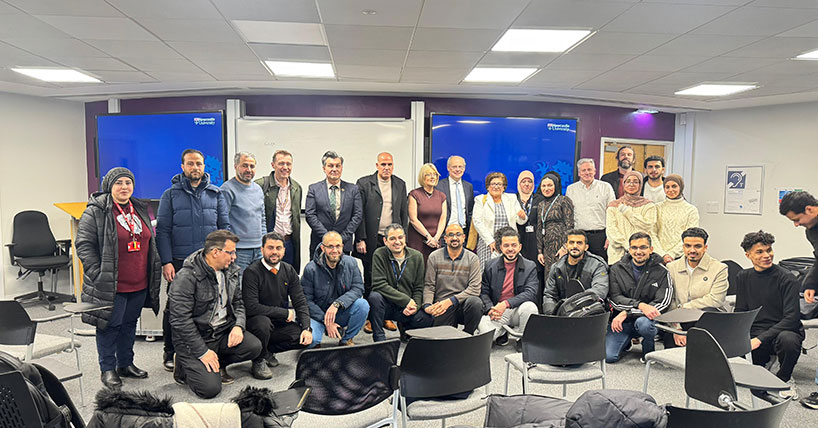BAM 2016
Making business a force for good
Published on: 5 September 2016
Business leaders from across the globe will be in Newcastle tomorrow to learn how companies can thrive in turbulent times.
No one simple solution
Newcastle University Business School is hosting the British Academy of Management (BAM) conference (6-8 Sept), which this year focuses on the significant challenges facing business today - from faltering economic growth and pensions funds to social inequality and climate change.
“The issues affecting companies today do not have a simple solution because they are influenced by many dynamic, complex and interconnected social, political, economic and technological factors,” explains Professor Savvas Papagiannidis, David Goldman Professor of Innovation & Enterprise at Newcastle University and conference co-chair. “Businesses need to know how best to cope with and respond to these large, unresolved societal problems and still thrive the turbulent times we live in.”

Exploring new ideas
Professor Papagiannidis says many of our old assumptions and certainties about how business is conducted are no longer relevant to today’s unpredictable work environment and therefore we need to urgently explore new ideas and models.
“Newcastle University is the ideal host for a debate on the role that academic research could play, not just in making sense of the challenges, but also in terms of informing future practice,” he says.
Seventeen academics from the Business School are presenting at the conference, covering a diverse amount of topics, including disengagement from pension funds, the relationship between banks and industry, and how to tackle innovation in complex projects.
The role of enterpreneurs
Dr Robert Newbery of the Business School is also leading a symposium: ‘We the entrepreneurs: the role of entrepreneurship in the Sustainable Development Goals’ which brings together entrepreneurship academics interested in international development and understanding how research can help achieve the goal of ending poverty by 2030.
“Poverty is a contested, multi-faceted and complex phenomenon,” he explains. “While entrepreneurship has been shown to have a strong link with business performance, its relationship to household level poverty has not been clearly established.
“An enterprise culture, where you are responsible for your own welfare, has become central to the development agenda.” Dr Newbery, who has just been awarded funding to carry out a workshop into enterprise culture in East Africa, has been studying how complex issues surrounding causality, resilience and reductionism among subsistence farmers in Kenya forms barriers to achieving the poverty goal.
Rapid transformational change
On a similar note, Dr Victoria Pagan will raise the issue of how global businesses trying to work for social good often struggle to reconcile this with their business interests and practices.
The Business School is a key part of the Newcastle Institute for Social Renewal (NISR), one of three institutes established to address Newcastle’s chosen societal challenges – ageing, sustainability and social renewal. NISR seeks to bring together research with a social purpose to make a difference by asking how individuals and communities can thrive in times of rapid transformational change.
BAM2016 will harness the knowledge and expertise of the broad academic community in debating these issues, aspiring to make a difference to organisations and stakeholders across the UK and beyond.



